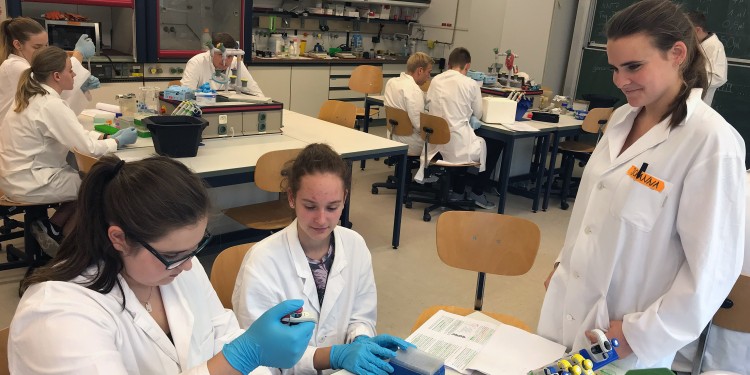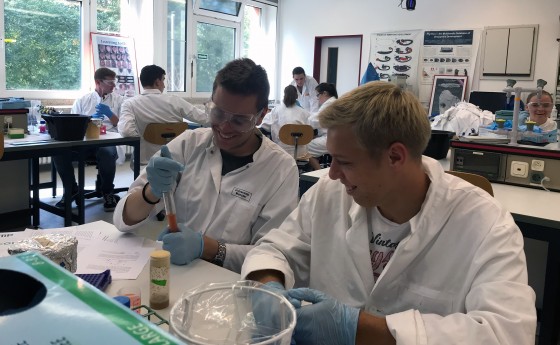
"Biology lessons at school should be exciting"
For two weeks, every spring and autumn, senior school students can be found at the Institute of Neuro- and Behavioural Biology at Badestraße 9. Collaborative Research Centre (CRC) 1348 – “Dynamic Cellular Interfaces” – at University of Münster offers school students majoring in Biology an opportunity to take a close-up look at university research and conduct their own experiments. In this interview with Kathrin Nolte the spokesperson for the CRC, Prof. Christian Klämbert, explains the background to this opportunity for a transfer of knowledge, which is funded by the German Research Foundation.
Why is the CRC offering these placements for school students majoring in Biology?
Firstly, we’re doing it because we’re aware that we need to attract the next generation of students. And secondly, we’re also aware that Biology lessons at school can’t always keep pace with the developments happening so fast in research. Modern biology – as it is undertaken at universities – is, as a rule, very different from Biology lessons at school. Some teachers were studying at university 20 years ago, for example, but an awful lot has happened in research since then. This period of time – 20 years – represents a quantum leap in terms of the possibilities and the knowledge which we now have. We not only give the students opportunities for experimental work – we also give them insights into our Institute. They find that fascinating, and they see how a modern laboratory functions. As a lecturer, I have sometimes heard students tell me that they were studying Biology because they had a placement with us during their time at school. So what we have been offering since 2007 is bearing fruit – and it is an offer that schools are very happy to take us up on. We always have three times as many applications as we have vacancies for placements.
What do the students learn during their placement?

What is the general idea behind what you offer?
We offer two different things: in addition to the placements for students, we also offer continuing education for teachers. This takes the form of lectures held once a month, in the evening, in the winter semester – and teachers show a lot of interest in attending. Many of them refresh their knowledge and take topics from current biology research back into the classroom. The combination of these two offers is a good opportunity to show that Biology lessons can be exciting.
